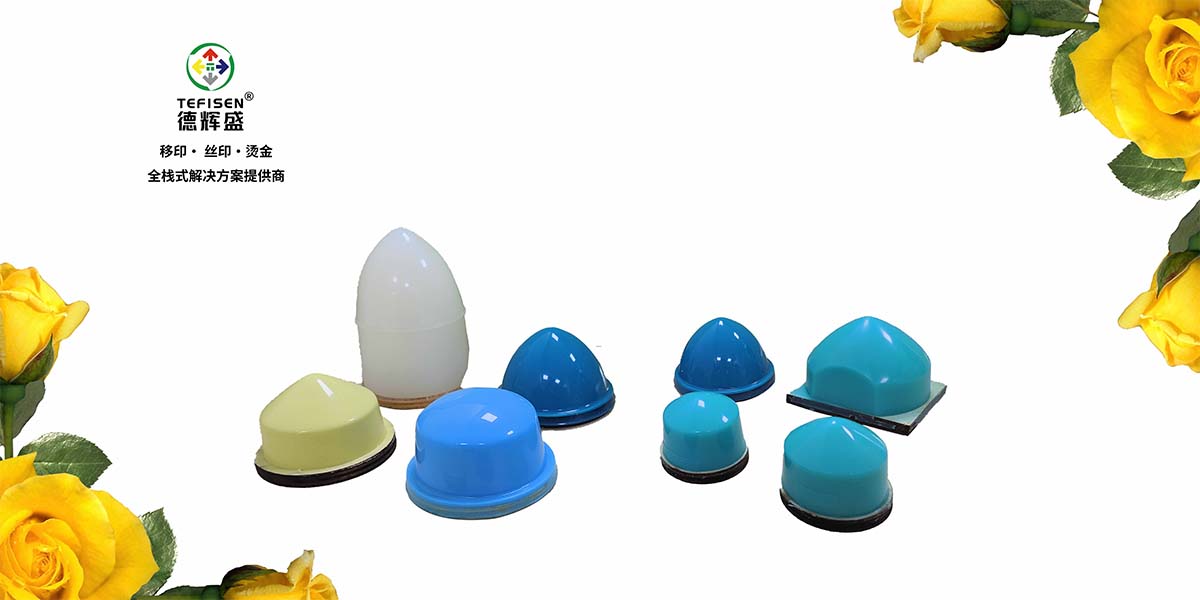Exploring the Mystery of Pad Printing Silicone Heads: The Unsung Heroes Behind Precision Printing
In the vast arena of modern
manufacturing, printing technology stands as a crucial instrument for enhancing
product aesthetics. As technology continues to advance, consumers' demands for
finer details and personalized appearances in product designs have skyrocketed,
propelling printing techniques towards higher precision, efficiency, and
environmental friendliness. Among these, pad printing technology has secured a
pivotal position in the realm of intricate pattern printing due to its unique
advantages. At the heart of this precise printing process, the pad printing
silicone head serves as the vital link between ink and the substrate,
undeniably the unsung hero behind the scenes.
Pad printing, as the name
suggests, involves transferring patterns or text from a printing plate onto a
rubber or silicone pad, which then precisely transfers the image onto the
surface of the target object. This process, though seemingly straightforward,
embodies a high degree of technical sophistication and complexity. The
performance and quality of the pad printing silicone head directly dictate the
outcome of the printing, making an in-depth exploration of its mysteries
essential for enhancing printing quality and driving industry progress.

I. Basic Overview of Pad Printing Silicone Heads
Definition and Composition
Pad printing silicone heads, as
their name implies, are rubber or silicone products utilized in pad printing
processes. Typically crafted from high-molecular-weight elastic materials such
as silicone and polyurethane rubber, these materials boast exceptional
elasticity, wear resistance, chemical resistance, and high-temperature
stability, making them ideal for pad printing silicone head production.
Material selection is based on factors including ink adsorption, adaptability
to substrate surfaces, and long-term stability.
Working Principle
The working principle of pad
printing silicone heads can be succinctly summarized as "ink absorption -
transfer - release." Firstly, the silicone head absorbs ink evenly from
the ink pan of the pad printing machine through gentle pressure and contact.
Subsequently, the machine aligns the head precisely with the patterned area on
the printing plate, applying pressure to ensure intimate contact between the
head and plate, thereby transferring the pattern from the plate to the head.
Finally, the loaded silicone head moves to the substrate surface, where it
applies appropriate pressure to transfer the pattern from its surface onto the
substrate, instantly releasing the head to complete the printing cycle.
Throughout this process, the silicone head's elasticity, wear resistance, and
ink adsorption capabilities play pivotal roles.
II. Technical Characteristics of Pad Printing Silicone Heads
High Precision
The high precision of pad
printing silicone heads is instrumental in their success in the realm of
precision printing. Modern pad printing technology can achieve micrometer-level
pattern replication, thanks to the precise manufacturing and superior material
selection of these silicone heads. High-precision silicone heads ensure that
patterns remain undistorted and clear during transfer, maintaining pattern
clarity and consistency.
Wear Resistance
Given the repetitive nature of
pad printing operations, the wear resistance of silicone heads is paramount.
High-quality silicone head materials can withstand the erosive effects of ink
chemicals and mechanical friction, ensuring long-term stability and durability.
This not only reduces production costs but also enhances efficiency.
Excellent Elasticity
The exceptional elasticity of
pad printing silicone heads is crucial for adapting to various surface shapes
and ensuring complete pattern transfer. During printing, the substrate's
surface may exhibit irregularities or curvature changes, and silicone heads
with good elasticity can conform closely to the substrate surface, ensuring
flawless pattern transfer. Additionally, elasticity enables the head to quickly
resume its original shape upon detachment from the substrate, preventing marks
or residue.
Ease of Cleaning and Maintenance
The ease of cleaning and
maintenance of pad printing silicone heads contributes to their popularity.
Over time, ink residues or impurities may accumulate on the head's surface,
affecting printing quality. Therefore, well-designed silicone heads facilitate
cleaning and upkeep. For instance, adopting easily detachable structures and
using chemically resistant materials can simplify cleaning procedures and
extend service life.
III. Application Fields of Pad Printing Silicone Heads: Extensive and In-depth Industry Applications
Pad printing silicone heads, as
the core component of precision printing technology, boast an incredibly vast
range of applications, encompassing virtually all industries that require
high-precision and high-quality pattern printing. The following are several
typical and crucial application fields, showcasing how pad printing silicone
head technology brings innovation and value to various industries.
Electronics: The Perfect Fusion of Technology and Aesthetics
In the electronics sector, pad printing silicone head technology is widely employed for pattern and text printing on the shells of consumer electronics such as mobile phones and tablets. With the escalating demand for personalized product appearances among consumers, the exterior design of electronics is increasingly focused on details and aesthetics. Leveraging its high precision and resolution, the pad printing silicone head effortlessly achieves precise printing of intricate patterns and minute texts, enhancing the exquisiteness and uniqueness of electronic product shells. Whether made of metal, plastic, or composite materials, the pad printing silicone head ensures the clarity and adhesion of patterns, seamlessly integrating technology with aesthetics in electronic products.
Automotive Manufacturing: Attention to Detail Defines Quality
The automotive industry also demands stringent printing quality standards. Pad printing silicone head technology plays a pivotal role in the fine printing of automotive interior and exterior trim components. From button labels on steering wheels, indicator icons on dashboards, to badges and decorative lines on the exterior body, the pad printing silicone head ensures precise patterns and consistent colors. Notably, in the printing of automotive badges, it showcases remarkable three-dimensional and metallic effects, elevating the overall grade and brand image of vehicles. Additionally, it caters to the personalized customization of automotive interior trim, satisfying consumers' desires for unique and differentiated interiors.
Plastics: A Dual Embodiment of Creativity and Practicality
Plastics, due to their low cost, ease of processing, and wide range of applications, are highly popular in the market. In the decorative printing of toys, daily necessities, and other plastic products, pad printing silicone head technology demonstrates its unique advantages. From cartoon patterns on children's toys to decorative textures on household items, the pad printing silicone head flawlessly reproduces and presents patterns. Furthermore, it supports printing on various colors and materials, enabling plastic products to exhibit rich creativity and individuality while maintaining practicality.
Packaging Industry: The Key to Enhancing Product Value
In the packaging industry, customized printing of premium packaging boxes and labels has become a vital means of adding value to products. The pad printing silicone head technology, with its high precision and efficiency, finds extensive application in packaging printing. From cosmetics, jewelry, luxury goods, to other high-end consumer products, the pad printing silicone head ensures clear, exquisite, and textured patterns and texts on packaging boxes and labels. This personalized custom printing not only enhances the aesthetic appeal and attractiveness of products but also strengthens brand recognition and market competitiveness. Moreover, it facilitates rapid printing of small batches and multiple varieties, meeting the flexibility and quick response requirements of modern packaging industries.
Other Fields: A Champion in Fine Pattern Printing
Apart from the aforementioned fields, pad printing silicone head technology also plays a significant role in the fine pattern printing of industries such as medical devices, ceramics, and glass. In the medical device sector, it ensures clear, accurate, and durable printing of labels on surgical instruments and medical consumables. In the ceramics and glass industries, it effortlessly tackles the smooth and ink-resistant surfaces of these materials, achieving impeccable pattern presentation. The continuous expansion and deepening of these application fields further prove the versatility and irreplaceability of pad printing silicone head technology in precision printing.
IV. Technological Development Trends of Pad Printing Silicone Heads
In today's rapidly evolving
technological landscape, pad printing silicone head technology continues to
innovate and advance, catering to wider market demands and higher printing
standards. Below is an in-depth exploration of the future development trends of
pad printing silicone head technology.
Material Innovation
Advancements in materials science offer limitless possibilities for the innovation of pad printing silicone heads. In the future, we will witness the emergence of more novel materials that not only excel in wear resistance, elasticity, and chemical corrosion resistance but also prioritize environmental friendliness. For instance, bio-based materials, degradable materials, and low-VOC (Volatile Organic Compounds) emitting materials will become research hotspots. The application of these new materials can not only enhance the overall performance of pad printing silicone heads but also reduce environmental impact, aligning with the trend of green printing.
Moreover, surface treatment
technologies for materials will further develop, such as nano-coating
technology and plasma treatment technology. These technologies can improve the
silicone head's surface's ink adsorption and release properties, enhancing printing
precision and stability.
Intelligent Upgrades
With the continuous enhancement of industrial automation and intelligence, pad printing silicone head technology will also undergo intelligent upgrades. Intelligent pad printing systems will integrate sensors, controllers, and data analysis software to achieve precise control and real-time monitoring of the pad printing process. This can increase printing efficiency and stability, reduce manual intervention and error rates, and enhance overall printing quality.
For instance, smart pad printers
can automatically adjust the pressure, speed, and angle of the silicone head
based on the material, shape, and printing requirements of the substrate,
achieving optimal printing results. Additionally, the system can monitor the
wear of the silicone head and ink consumption in real-time, providing early
warnings for timely replacement or replenishment, ensuring production
continuity and stability.
Green Printing
Heightened environmental awareness has propelled green printing as a crucial development direction for the industry. As a crucial component in the printing process, the green transformation of pad printing silicone heads is imperative. In the future, we will witness the increased use of eco-friendly inks and recyclable materials, as well as the development of more efficient cleaning and recycling technologies.
Eco-friendly inks should possess
low toxicity, low VOC emissions, and biodegradability to minimize harm to the
environment and human health. Concurrently, the research and application of
recyclable materials will become a trend, enabling convenient recycling and
reuse after printing, thereby reducing resource waste and environmental
pollution.
Furthermore, cleaning and
recycling technologies for pad printing silicone heads will continue to
optimize. The development of efficient and eco-friendly cleaning agents and
recycling systems will minimize wastewater discharge and chemical consumption
during cleaning, realizing green cleaning and recycling.
Customized Services
As market demands become increasingly diverse and personalized, customized services will emerge as a critical development direction for pad printing silicone head technology. Customers' expectations for printing quality, efficiency, cost, and environmental friendliness are rising, and customized services can better meet these demands.
Customized services encompass
not only the creation of silicone heads with specific shapes, sizes, and
materials tailored to customer needs but also the provision of comprehensive
printing solutions and technical support. For instance, offering pre-print
sample testing, technical support during the printing process, and post-print
quality inspection and after-sales services. These services help customers
better achieve their printing goals and enhance market competitiveness.
Simultaneously, customized
services will foster continuous innovation and development in pad printing
silicone head technology. Through close collaboration and feedback with
customers, we can promptly understand market demands and technical bottlenecks,
thereby continually optimizing product design and manufacturing processes,
driving the progress of pad printing silicone head technology.
In conclusion, the application
of pad printing silicone head technology across various fields has demonstrated
its unique advantages and value. With technological advancements and the
growing market demand, we have every reason to believe that pad printing
silicone head technology will continue to flourish in the future, bringing
innovation and value to numerous industries.

